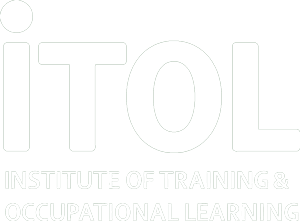My old dad had a saying that governed practically everything he did “the simpler the better son”. I’ve recently been reflecting on the wisdom of that approach as I’ve been getting caught up with the complexities of life. The job seemed to be getting more uncertain and ambiguous.
For example, I was being led to believe that my learning interventions need to be ‘gamified’; ‘personalised’; ‘socialised’; ‘disruptive’; ‘customised’; ‘immersive’; ‘curative’ and, of course, they need to be based on neuroscience, and, of course, utilising the 70:20:10 principles. Oh I almost forgot, it needs to tick the ‘microlearning’ box as well.
Let me make it clear: I have no issues with any of the above. It’s just that all of the articles and webinars and blogs seem to sidestep the one element that consistently makes the difference between success and failure in learning events –THE TRAINER!
We trainers have become a little difficult to find. We’ve taken on a multitude of new titles for our role ( I guess we don’t think trainer is sexy enough ). However, whatever name we give to what we do it’s pretty obvious that, first and foremost,
Training is a Profession that must be populated with Training Professionals!
A couple of years ago we (The Institute of Training & Occupational Learning) carried out some research into the L&D profession and It threw up some interesting facts. Here’s a few of them:
- 56% of the profession have no formal L&D qualifications
- 28% of those who consider themselves qualified point to their attendance at in-company Train the Trainer courses
- 63% undertook less than two days of CPD during the previous two years
- 27% have no membership of any Professional Body.
If our Profession is to have a future in this ‘New Normal’ that will eventually come to pass, and if L&D practitioners are to have any credibility within their organisations, then now is the time for trainers to be courageous (or some might say Crazy) and speak up for what we know to be best practice..
It takes courage to be a Professional.
There are not many things you can count on in life, however there are two things I can guarantee right now. TIMES WILL CHANGE and OUR WORLD WILL BE DIFFERENT.
We will gradually see activity returning to our streets and the businesses we are connected with. Everything will appear to be getting back to ‘normal’ but, of course, they won’t be. We will have discovered different ways of doing things, we will have found innovative ways of achieving what we have to. I’m pretty sure that nobody is able to predict how things will play out in our ‘different world’, especially in the field of people development. I suspect that our training world will be quite unpredictable for some time to come.
We will need some place of stability.
If the L&D profession is to have a relevant place in this volatile environment, and if L&D practitioners are to have any credibility within their organisations, then now is the time to courageously dig solid foundations of Professionalism.
What does that mean? I guess if you had to describe “a professional” you would include the following:
- Expert in the field in which they are practising;
- Excellent practical skills in relation to their profession;
- High quality of work;
- High standard of ethics;
- Self-motivated and reasonable work morale;
- Maintains good relationships with other colleagues;
- Commitment to their profession and fellow professionals.
We need to be courageous in holding ourselves and our colleagues accountable to the highest standards of professionalism, whether that be in skills, expertise or ethics. The enforced isolation that has been the experience of so many of us might be a good opportunity to take a few quiet moments and ask ourselves some questions like:
- ·When did I last check out any credible research taking place in my field?
- What skills have I taken for granted?
- In what areas am I not as sharp as I used to be?
- What steps are in place for me to quality check my work?
- Do I cut corners?
In unstable times we need courage to hold on to durable and enduring principles of professionalism.
Check out membership of ITOL and reap the rewards of being part of a global community.
Harry Bundred has a 40 year career in L&D and during that time he has fulfilled most roles and occupied most positions .The last fourteen years have seen him occupy the Director’s chair at The Institute of Training & Occupational Learning. He’s always willing to pass on his expertise and experience, he can be contacted at harry@itol.org
